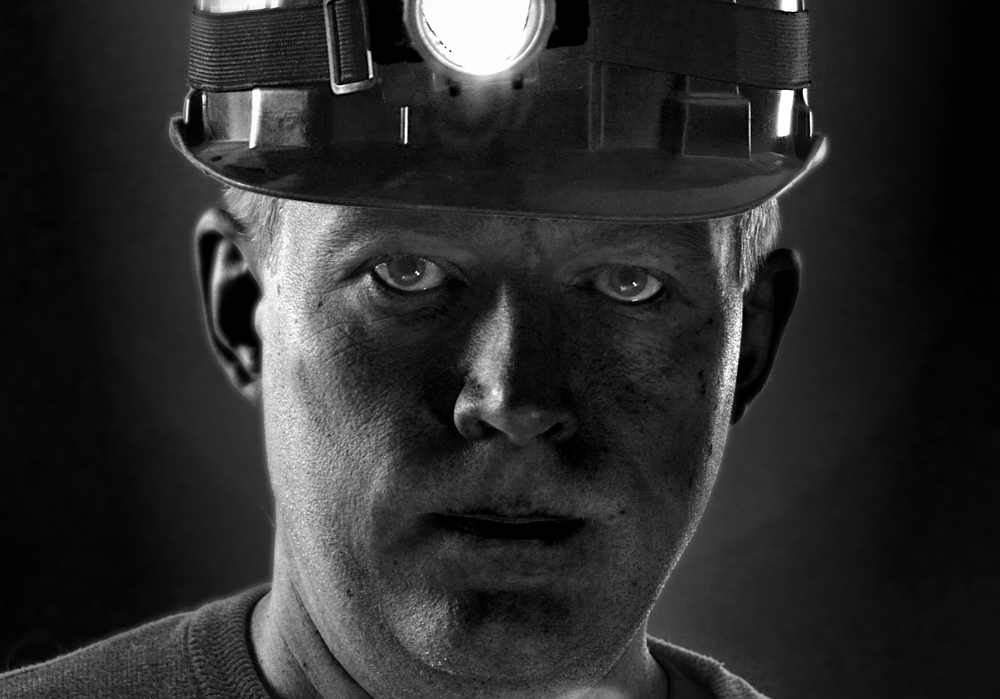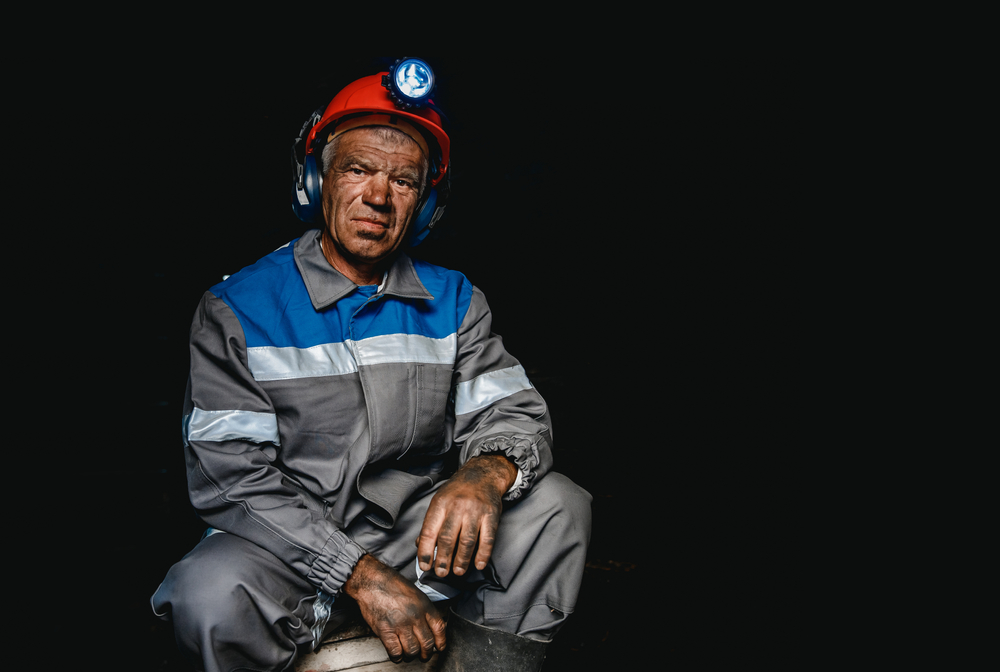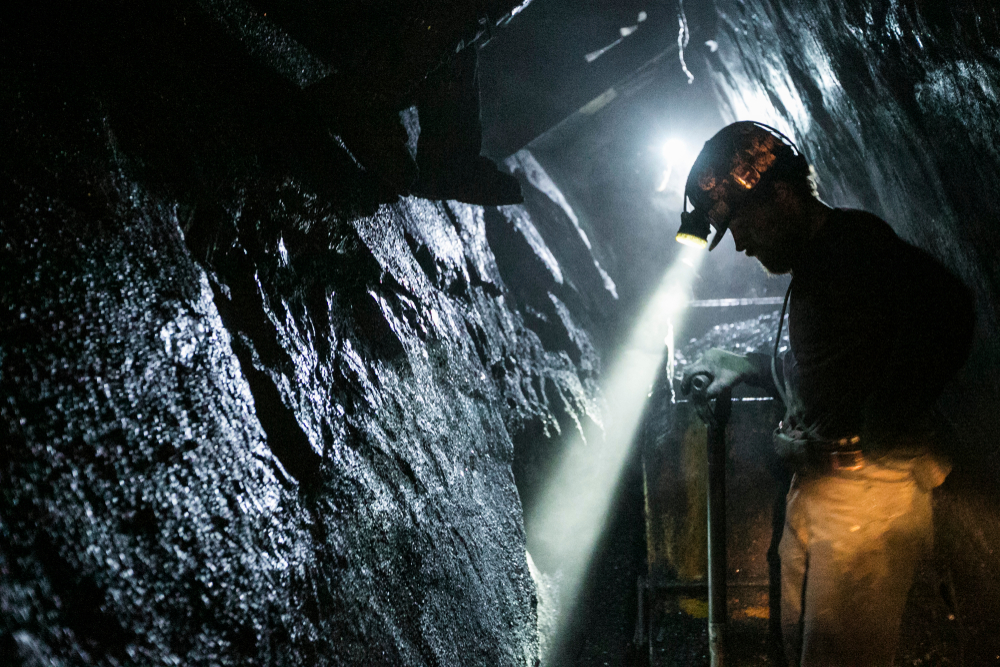Story of a Boy Who Escaped Poverty at 12 in the Coal Mines—Now He Has a PhD in Mining Engineering

Some stories don’t begin with a dream—they begin with survival. For a boy in rural China, the walls of his world were made of coal and the ceiling was the rocky roof of a mine shaft. At twelve years old, while most children were learning multiplication tables and chasing playground games, he was deep underground, working alongside his father in the dim glow of headlamps, breathing in dust and determination. Life gave him few choices, but it gave him one thing that would change everything: the will to climb higher.
Today, that boy is known across China as “Coal Miner No. 3.” Millions have heard his story—not just because he rose from poverty to earn a PhD in mining engineering, but because he did it without erasing where he came from. His journey is one of grit and grace, discipline and kindness, setbacks and second chances. It’s proof that the human spirit, when paired with relentless effort and the right support, can tunnel through even the hardest rock.
WHO'S DOING IT LIKE ZHANG HAO? 🎓
— moon (@zhanghaozip) June 14, 2024
• Took Gaokao in 2017 (before his 17th birthday) at 16 years old
• Got accepted to China University of Geosciences (a university that's a part of Project 211, under this project are top ranking unis and universities that are internationally… pic.twitter.com/LZ0mxg8xpI
Education as a Lifeline, Not a Luxury
For “Coal Miner No. 3,” education was never a given—it was a lifeline. It became the ladder he would climb out of the coal pits and toward something brighter. After his second attempt at the gaokao, he entered a vocational college to study geological engineering, a choice that bridged his familiarity with the mining world and his desire to reshape it. His path wasn’t linear or easy. While his peers might have relied on family support, he relied on grit. He worked through school, balancing intense academic pressure with physically demanding part-time jobs. But perhaps what set him apart most was not just his discipline—it was his clarity of purpose. Every textbook he read, every exam he passed, was more than an academic milestone; it was a declaration that he would not be defined by where he came from.
His educational journey didn’t end with a degree. Instead, he immersed himself deeper, enrolling in postgraduate studies and dedicating himself to real-world fieldwork. At the Tashan Coal Mine in Shanxi province, and later in the remote Xinjiang region, he didn’t sit in labs removed from the reality of the industry—he returned to its heart. These were not symbolic visits. He lived and worked on-site, experiencing firsthand the engineering challenges and safety hazards that miners face daily. He wasn’t studying mining from the comfort of a classroom; he was living it—researching it not as an outsider, but as someone who had once risked his own life underground. That authenticity gave his research depth, grounding it in real-world conditions instead of theory alone.

he Power of Relationships and Community
Even the strongest hearts need support—and “Coal Miner No. 3” was no exception. As much as his story is about self-discipline and ambition, it’s also a story of kindness, generosity, and the quiet strength of community. When finances were tight and hope flickered, it was his roommate, Zhang Yan, who offered more than a roof over his head. Zhang gave him his first phone and even shared his own clothes. These were not grand gestures, but they were lifelines. In his thesis acknowledgements, “Coal Miner No. 3” credits Zhang as someone who stood by him when it mattered most—a reminder that even the most determined individual sometimes needs someone to lean on.
Then came another kind of support—emotional companionship. At 27, he met the woman who would later become a stabilizing force in his life. Describing her as a “ray of light,” he expressed gratitude not just for her love, but for the mutual growth they experienced while navigating life together. Her presence—and the acceptance and backing of her parents—gave him something just as essential as academic achievement: a sense of belonging. In a society where personal connections can make or break someone’s trajectory, these relationships grounded him. And at the foundation of it all were his parents. Though poor, they gave him everything they could—strength, resilience, and values that became his compass.

From Survivor to Scholar—Shaping the Future of Mining
“Coal Miner No. 3” didn’t just escape a hard life—he returned to it with a mission to make it better. His doctoral research focused on Tunnel Boring Machines (TBMs), the very technology shaping the future of underground construction. These machines are critical in reducing the risks miners face and in making projects like tunnel excavation safer and more efficient. His work isn’t academic theory; it has real-world consequences. His lived experience, combined with technical expertise, makes his insights especially valuable in an industry that often fails to center the voices of those who’ve truly known its dangers.
By choosing a research path rooted in the very conditions he once worked under, he positioned himself not just as a scholar, but as a reformer. He’s not trying to erase where he came from—he’s using it to build better systems for those still there. It’s not lost on him that millions of miners continue to face harsh, unsafe conditions. He knows their pain, their fatigue, their fear. And perhaps that’s why his story resonates so deeply with millions online—it’s not just that he made it out. It’s that he turned back, asking how he could help make sure others don’t have to suffer the way he did. The coal mine gave him scars, but it also gave him purpose.
A Heart of Iron—And a Call to Reflect
At the close of his thesis, he wrote, “A man’s heart stays firm as iron to his last day.” That line isn’t just poetic—it’s prophetic. It echoes the silent conviction that has guided every step of his life. In a world often obsessed with talent, shortcuts, and instant success, his story is a powerful counter-narrative. It reminds us that the most valuable tools aren’t handed to us—they’re forged in pressure, discomfort, and persistence. His journey from child laborer to PhD-holder isn’t just inspirational—it’s instructive. It tells us what’s possible when heart and hard work align.
But this story isn’t just about one man. It’s a mirror. What are we doing with our circumstances—whether fortunate or challenging? Are we allowing them to define us, or are we using them as the raw material to define ourselves? His path wasn’t paved, it was dug. His fate wasn’t gifted, it was earned. And maybe that’s the quiet challenge his life issues to all of us: to believe in transformation, to value education, to support one another, and to never stop digging for the life we know we’re capable of building—even if we start underground.
Loading...

